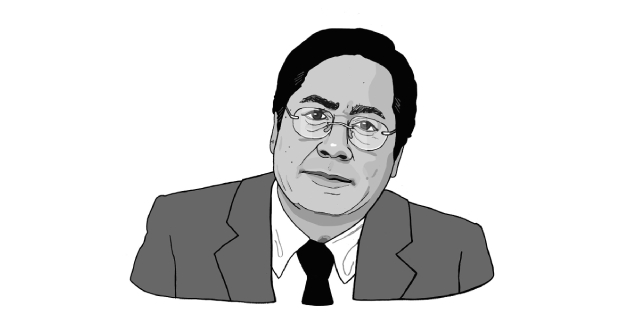The government has expressed concern about a legislative coalition possibly shortening President Luis Arce’s term in Bolivia.
This coalition includes opposition parties and a faction led by former President Evo Morales. Presidential spokesperson Jorge Richter shared these concerns on a broadcast program.
Richter didn’t label the situation a coup but noted a strategy to weaken the government. He stressed that the coalition would shorten Arce’s term if they found a chance.
The spokesperson highlighted tactics like road blockages and institutional takeovers, similar to events in 2019.
He pointed out extremism in politics, suggesting these groups are prepared to cut Arce’s term short.
He emphasized that the opposition’s actions threaten political stability and ignore public needs.
They seem more focused on reaching a weakened government than on constructive goals.

Richter identified a key figure in the aggressive opposition, complicating legislative governance.
The opposition’s strategy seems to aim for advantages in the 2025 elections, requiring a two-thirds legislative majority for key decisions.
Richter criticized the coalition for trying to undermine Arce’s work. He called for laws that benefit society and support economic growth.
Richter urged the opposition to be more constructive and understand economic complexities amid these tensions.
Background
Bolivia has a history of political volatility, with frequent shifts in power dynamics. The current situation reflects long-standing political divisions.
Morales’ tenure, spanning 2006-2019, saw significant changes in Bolivian politics and society.
Since then, political alliances and rivalries have significantly influenced governance.
Arce’s presidency represents a continuation of the socialist policies initiated by Morales.
However, internal divisions within their party have emerged, complicating the political landscape.
The opposition’s coalition, including various ideological groups, presents a formidable challenge to Arce’s administration.
Richter’s statement highlights the fragile nature of Bolivia’s current political balance.
The government’s alert on potential threats to Arce’s presidency underscores the deep-seated tensions.
These developments indicate a need for careful political maneuvering to maintain stability.
The situation in Bolivia mirrors broader regional trends of political unrest and shifting alliances in Latin America.
Observers often compare Bolivia’s political challenges with those of neighboring countries.
The outcome of this crisis could set a precedent for political strategies in similar situations across the region.
In this context, the government’s call for constructive opposition reflects a desire for stability and progress.
Bolivia’s political future hinges on the ability of its leaders to navigate these complex challenges.
The resolution of this situation will likely have lasting impacts on Bolivia’s political trajectory.

